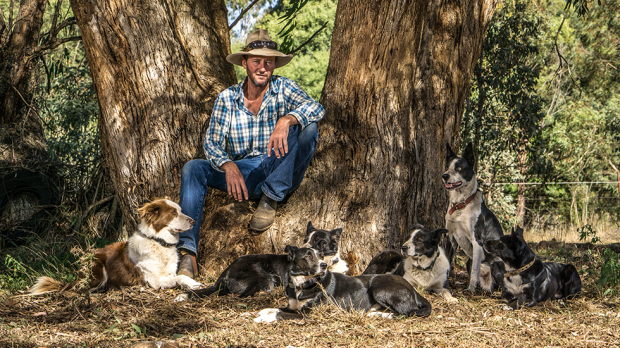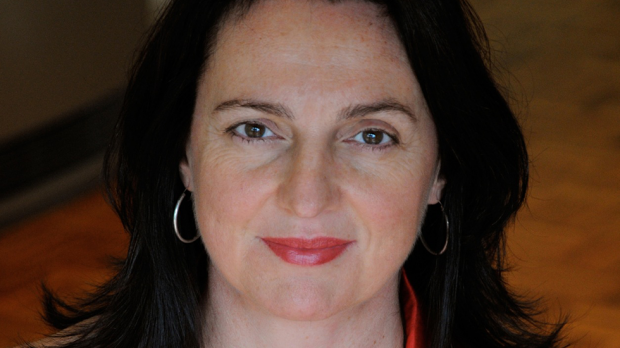
In 12 years BackTrack has helped hundreds of young people in rural areas avoid falling through the cracks to become yet another statistic in the juvenile criminal system. Founder Bernie Shakeshaft has a rather unique approach to this using dog handling to bond with the boys, but it has certainly achieved results. Backtrack Boys is an observational documentary following the lives of these boys, as they travel with Bernie and his legendary dog jumping team. DAVID O’CONNELL spoke to director Catherine Scott about the boys, the unusual jackeroo helping them, and the dogs that are at the heart of his therapy.

I believe we have your seven year old son to thank for you first finding out about BackTrack?
I found out about them as l was looking for a diabetes alert dog for my son. I was talking to someone about border collies, films I had made in the past, and prisons, and this person put those together and said I need to meet Bernie Shakeshaft. “He is doing some amazing work with kids that have fallen through the cracks. He’s working them with a dog jumping team, and they’ve become national champions. He is turning these kids’ lives around in the process.” I loved the idea of it as it was very visual, but I loved it that he was a jackaroo that had got jacked of what we were doing, and just went out and did something different with remarkable results. It is a story we all need to hear.
When did you know it would turn into a feature length documentary?
When I first went there I was going to do a half hour for TV. I met Bernie who had so much to say, so much history, and so much philosophy and thought to creating the program. I also met a lot of the young people, and I was so impressed by their self awareness, and their ability to express themselves. I thought, “we’re not used to seeing them in this light”.
Then I met Rusty! It was his first day, and he becomes one of the main characters in the film. He was a wild, wild, little boy! I’ve got someone like Zac,who’s been at the program for a while, and getting ready for the big world, but then I’ve got this young lad just going in. I started filming Bernie with him, and I thought… ‘Wow, there’s a real feature in here!’ I think the main thing that makes it a real feature film is transformation of character, and l had it by the bucket load. These boys becoming men, and their back stories are all the big issues of the day we are focused on – domestic violence, drugs, the criminal justice system…all that is playing out in intimate lives of these young people.
Was it hard to earn the trust of these kids and give them a safe space for them to open up about their lives?
A lot of it happens in the process. As a filmmaker, I rocked up with my two kids with me and just fit right in. I’ve been making docos for a long time, and you have to have the ability to get them [the interviewees] to trust you, to work with them, and to listen to them. Kids are really smart. They know what’s going on pretty quickly, and you’ve just got to be authentic.
It’s [the process] slow. I always had the camera with me. They were surprised when they saw me without it at the premiere. I just genuinely connected with them. I think they had a lot of important stories to tell, I also just listened to them. They don’t often get that and they appreciate that.
Why has Bernie’s program been so successful?
Partly because he listens to the kids. He has a program based on needs, not punishment, based on them choosing to be there. And the biggest referrals they get is kids referring other kids.
It’s grown pretty organically. He’s a very pragmatic guy – he’ll see a problem and address it. And that’s how it’s progressed, from him filling in the gaps, and what their needs are.
Is it true that the dog chooses the kid?
Pretty much. The dog chooses the kids, and the kids chose the dogs. It is very intuitive, about good connections working both sides. Most dogs are trained for one thing, but Bernie’s dogs are amazing, doing six different jobs [as part of the program]. He views them as youth workers in many way. The dogs really absorb a lot of the kids’ emotions, and its a wonderful way for the kids to connect to themselves and calm down. We open the film with the dog Valium scene, and it’s kind of a meditation in many ways. So the dogs are really the cornerstone of the program. Bernie always says for him it’s dogs, for another youth program it might be surfing, or it might be horses, or it might be biking. Whoever it is, whatever it is, it’s good to follow your passion and knowledge. That is why it works so well. It is all about connecting young people to the planet.
What’s next for you?
Trans Mission. It’s with Mint Pictures, and it’s following a transgender woman called Holly Conroy. She’s a truckie from Wagga Wagga, and she wants to hold the first Mardi Gras in Wagga Wagga. It is a bit of a story of Holly’s life and reaching out to the LGBTQI in the rural areas. (Screening as part of SBS Untold Stories series)
I feel like I’m the rural doco girl, but I have to say, I love that space. I love telling the stories. I feel like those communities are really changing right now. Some of these regional areas are doing stuff that is really surprising and interesting, and they’re doing stuff that other Australians can learn from.
Notifications